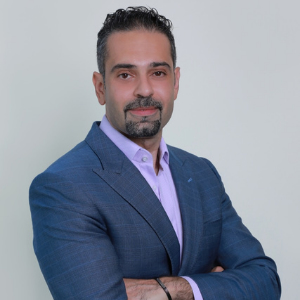Table of Contents
The first month with a baby does not run on normal time. You are learning new rhythms, shuttling to checkups, and catching sleep in short bursts. In the middle of it all sits one quiet but important job: adding your child to your health insurance. Do it early and routine care slides neatly under your benefits. Put it off and you may pay for visits that would have been covered. Not to worry, the health insurance pros at Petra are here to help this exciting (and sleep deprived) time in your life.
The Window You Do Not Want To Miss
Most health insurance providers in the UAE grant parents about thirty days from the date of birth to place a newborn on their existing policy. Enrolling within this window allows you to avoid waiting periods and awkward gaps in coverage. It also means those first vaccinations and follow-up appointments are protected from the start.
What To Have Ready
Keep a small folder on your phone or laptop and drop in clear scans of the essentials. You’ll need:
- Hospital birth notification or birth certificate
- Baby’s passport (when issued)
- Baby’s Emirates ID or the Emirates ID application number
- Parents’ Emirates IDs and passport copies
- Current policy details (policy number and member ID)
- Mobile number and email tied to the insurer app or portal
- Any invoices, discharge summaries, and prescriptions for visits before activation so you can claim later
How The Addition Usually Happens
Tell your insurer as soon as you can. If your plan comes through your employer, let HR know and share your policy number along with the baby’s full name and date of birth. Many providers will open the record with the birth notification and update it when the passport and Emirates ID arrive.
If you are on an individual plan, your broker can convert it to a family plan so your child appears as a dependent. This ensures your newborn is covered under your UAE health insurance without interruptions.
Picking Cover That Matches Real Life
Newborns see the doctor often. That is why many parents move from a basic tier to a plan with a wider network and lower copays once clinic visits become part of the routine. If you live in Dubai, your policy sits under the DHA. In Abu Dhabi, it is DOH. The rules are similar, yet networks differ, so it helps to map clinics near home and work before you choose.
Choosing the right health insurance in the UAE can make a big difference — especially when it comes to pediatric care, vaccination schedules, and hospital visits.
After Approval, Small Steps That Save Time
Once your insurer processes the request, open the member app or portal. Be sure to check that your baby’s name appears under dependents and note the start date. Download the digital insurance card and keep a copy on your phone. Clinics and pharmacies will ask for this insurance card at registration. If you paid out of pocket while you waited for approval, log your claims promptly. Most insurers allow reimbursement when the addition happens within the stated window.
When Life Crosses Emirates
Families often live in one emirate and work in another. Dubai policies are supervised by DHA and Abu Dhabi policies by DOH, and networks do not always match. A broker can place you on a plan that covers the clinics you actually use and keeps your records aligned with visa requirements.
Petra Can Take This Off Your Plate
Paperwork will never feel as important as the first smile, yet this one task buys real peace of mind. Petra Insurance helps parents with the entire health insurance in the UAE process. We collect documents, file the addition, confirm activation, and make sure your cover lines up with DHA or DOH rules and your visa file.
If you want a quick check of your current policy or a better network for pediatric care, contact a member of our team. We’ll guide you step by step so your newest family member is protected from day one.

RAMZI GHURANI
Managing Partner




